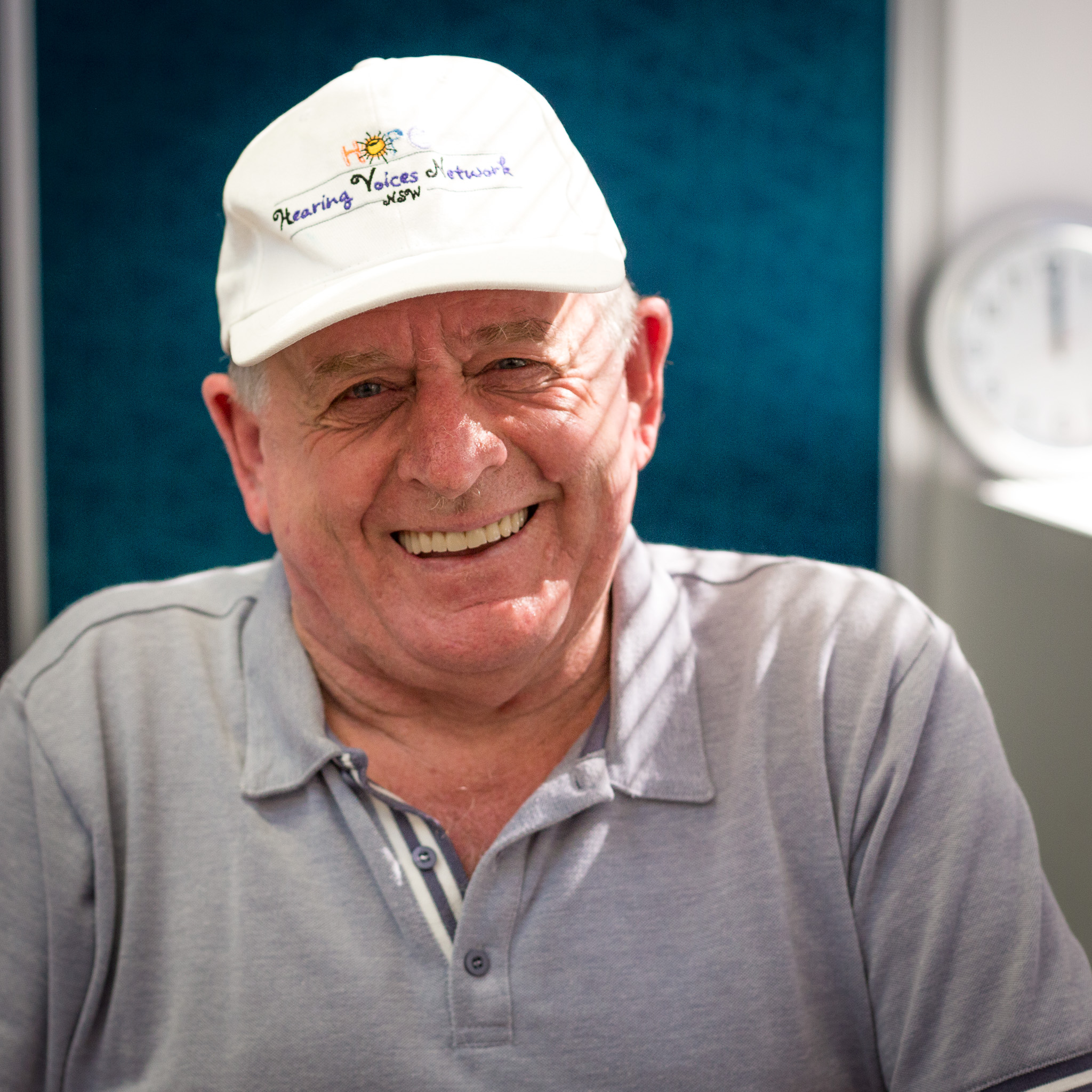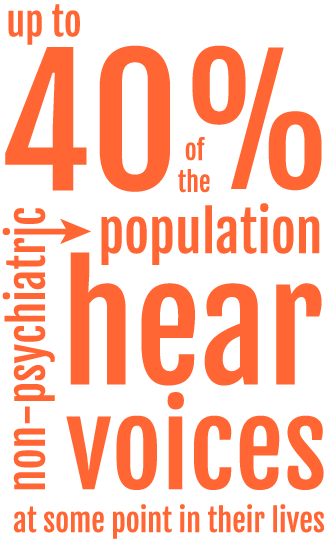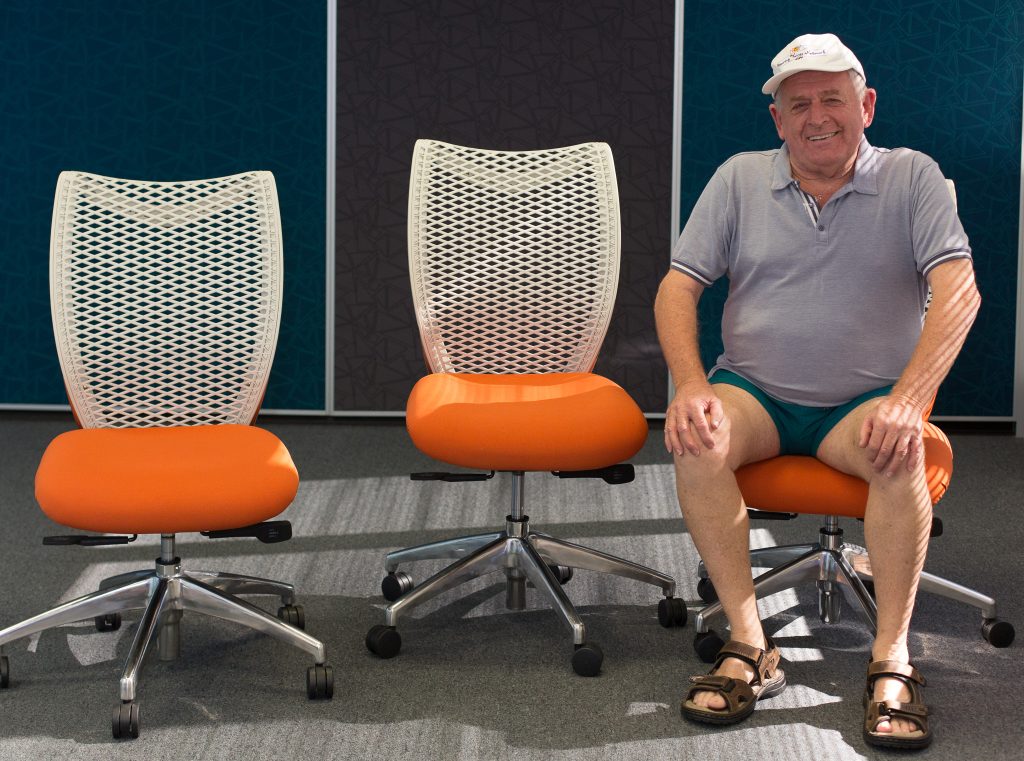Hearing Voices – Doug Holmes

Imagine hearing someone call your name as you’re walking down the street, or having a song stuck in your head. To never be alone, even when you’re by yourself. That is what it’s like for a percentage of the population who hear voices.
At WayAhead on May 6, Chairperson of Hearing Voices Network in NSW Douglas Holmes, whose friends call him Doug, gave an inspiring talk on the work of the Hearing Voices Network and the experience people have with hearing voices.

Up until 1987, the idea of hearing voices was seen as a symptom of a mental illness or not real at all. That all changed with the start of the hearing voices movement.
Started in Holland by Marius Romme, Sandra Escher and Patsy Hage, the movement fights to change the stigma of hearing voices. They want the world to view hearing voices as just another uncommon but significant characteristic of being human and not as a mental illness in itself.
The movement is now in 43 countries, with an International Declaration signed in Melbourne in 2013, stating the beliefs, aim and goals of the movement and the International Hearing Voices Network
So, what causes a person to start hearing voices?
We do not know where the voices come from or why they start. However, often those who hear voices attribute it to a traumatic experience in their lives, such as abuse, an accident or a death. The treatment of voice hearing, however, is not about how to get rid of the voices, but more often than not around how to cope with the distress that they cause, with many hearers, such as Doug, learning to live harmoniously with his voices.
Doug is a natural storyteller, a little intense, but nonetheless larger than life. His life is colourful, he is highly motivated to help others and he often talks in anecdotes about the trouble he’s gotten himself into, like climbing to the top of poplars to sing songs while his mother drives by, or telling the navy recruitment officer the reason he wanted to join the navy was because of early retirement – he was just sixteen.
But of course, other stories reveal pain and you realise his life has had a lot of difficulties that only someone with a diagnosis of Bipolar Affective Disorder could imagine. There is also a real sadness about some of the things that have happened but he chooses not to let them affect him.
Doug hears three types of voices. A man’s voice named Christopher, who he describes as cheeky but helpful in making decisions. Margaret, a female voice that sounds like his first mother-in-law, who is often hurtful and spiteful, and is usually heard when he’s doing something wrong. Safe to say, he favours Christopher over Margret.
The third voice is more of just a sound that lingers but isn’t bothersome. Christopher will give Doug the push that he needs to do something different or take on a project – he’s the helpful friend we all need. Margret, on the other hand, is the friend we don’t really want to listen to – telling Doug he hasn’t been taking care of himself and needs to get his act together; more tough, than love.

Douglas Holmes with two of his three voices – Margaret and Christopher
It may be easy to say ‘why not just take medication for it’, but for Doug and many other people with voices, learning to live with them can be much healthier than trying to pretend they never exist.
Doug has been medication free since 2000 but before that, taking medication to silence the voices was like losing two friends. Doug was on lithium medication for eight years and says it felt like his mind was a still lake. No ripples or movement.
Finding the motivation to get out of bed in the morning was a struggle, sleeping until the middle of the afternoon and having no energy. He just wasn’t himself on medication. Doug makes the choice daily through his inner strength to be happy and to live with the decisions he has made.
“Every day I make a choice between feeling happy or sad. I choose happy. I have plenty in my life to be sad about but I choose not to so I can hopefully help some other family in a similar situation,” he says.
So, he values sleep. He keeps himself busy. He breaks his days down into sets of decisions that are well considered. He makes choices and makes them with the wisdom that comes with age.
Knowing there is someone out there who has had this lived experience and can still have a positive outlook on life makes you have a different perspective on people who live with a mental illness and who hears voices every day. Doug makes you think differently. And that, of course, is the point.
Hearing voices can make someone feel scheduled under black and white policy and for most of his 66 years, Doug didn’t speak about his voices. He didn’t want to be locked up or made an outcast. Through people like Doug, the Hearing Voices Network can continue to change the perceptions society has of people who hear voices. And, for this, Doug is a champion.
You don’t have to love the voices nor do you have to be alone with them. Hearing Voices Network provide support through experience to people hearing voices and to their carers. They don’t advocate going medication free, as each person’s experience with voices is different, so too should their path to recovery.
The network support several self-help groups across NSW where voice hearers can talk in a safe and judgement-free environment, including a group at Collective Purpose in Woolloomooloo that meet every second Friday.
Doug’s advice is to “try to be as honest as you can with your treatment team in order to get the best possible results for treatment options”.
Back to most recent edition
Newsletter
Stay up to date
Sign up to our Mind Reader newsletter for monthly mental health news, information and updates.